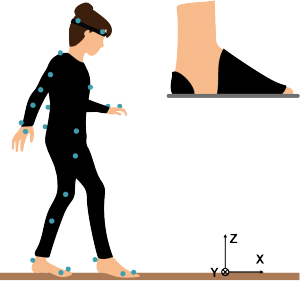
Humans exhibit remarkable locomotion capabilities that out-perform modern robots, while considering the complexity of the musculo-skeletal system and its ‘slow’ feedback loop. Our understanding of neuro-mechanical control model of balance is yet limited. A better understanding of human neuro-muscular controller may guide a proper way to rehabilitate or to assist impaired people, and even facilitate performance improvement in robotic systems. In particular, this project studies how humans balance in a challenging environment through coordinated experimental and theoretical simulation study. The experimental data would quantify how human subjects control their balance on a beam with-and-without manual support (canes and crutches). Theoretical and computational study would test whether a biologically-relevant controller can reproduce experimental data, and furthermore, facilitate learning to balance with tools under challenging conditions.
Jongwoo Lee, Dr. Meghan Huber